Introduccion Al Griego Biblico – (Spanish)
$17.99
La obra Introduccion al griego biblico responde a una fuerte necesidad sentida por todos los que han tenido la responsabilidad de formar a los futuros lideres de las iglesias. Tambien entre los que ya son ministros se ha sentido durante mucho tiempo la necesidad de conocer con mayor precision y profundidad los textos del Nuevo Testamento en su idioma original, el griego comun o koine. En un exitoso intento por llenar esta laguna, Ann Henriques, Nelson Morales y Daniel S. Steffen, Profesores del Seminario Teologico Centroamericano en Ciudad Guatemala, han preparado esta obra introductoria que responde con claridad y sencillez a las preguntas de siempre entre los que saben que necesitan conocer el idioma original de esta parte de las Escrituras, y al mismo tiempo no saben como lograrlo:
Donde y cuando se origino el idioma griego? Por que es importante estudiarlo? Cuales son las dificultades a superar en el estudio de un idioma que ni siquiera utiliza el mismo alfabeto que nosotros? Cual es la manera mas practica de estudiarlo?
Los autores van resolviendo todos estos interrogantes, uno por uno. Desde el alfabeto griego hasta las declinaciones de las palabras y la conjugacion de los verbos, todo es explicado de una manera asequible a quienes realmente se quieran familiarizar con este idioma. Dicho en pocas palabras, los profesores de uno de los seminarios teologicos mas respetados de Iberoamerica han trabajado en equipo para presentarnos hoy esta Introduccion al griego biblico, que muy pronto sera reconocida como el mejor curso introductorio para el estudio del griego biblico.
Introduction to Biblical Greek
Introduccion al griego biblico answers a need that has been strongly felt by all those who have been responsible for the training of future leaders in the Church. It has been felt also by those who are already in the ministry, because of their desire to know more accurately and deeply the meaning of the New Testament texts in their original language, Koine or Common Greek. In a successful effort to fill this void, Ann Henriques, Nelson Morales and Daniel S. Steffen, all of them Professors in the Seminario Teologico Centroamericano, Guatemala City, have created this introductory study to answer with clarity and ease the ever-present questions among those who realize their need to know the original language of this section of Scriptures while at the same time don’t have a tool to achieve that knowledge:
Where and how was born the Greek language?
in stock within 3-5 days of online purchase
SKU (ISBN): 9780829766097
ISBN10: 082976609X
Language: Spanish
Anita Henriques | Nelson Morales | Daniel Steffen
Binding: Trade Paper
Published: March 2015
Publisher: Editorial Vida
Print On Demand Product
Related products
-
Hebrew For The Rest Of Us Second Edition
$32.99Learn the Essentials of Biblical Hebrew So You Can Study the Old Testament More Deeply
Hebrew for the Rest of Us, Second Edition by Lee M. Fields is a guide for English-only readers to understand the highlights taught in three or four semesters of Hebrew language study to deepen their approach and understanding of Scripture. Fields highlights essential Hebrew grammar by drawing on parallels to English grammar and then moves the reader toward developing necessary skills and knowledge of the language so as to utilize the great number of Bible study materials available.
The material taught in the book aims to enable students to know:
*Why translations differ
*How to do careful Hebrew word studies
*How to engage in basic but detailed Hebrew exegesis
*How to read more advanced Old Testament commentaries with greater understandingWhat’s new in the second edition?
*Rewritten material on the verb chapters that is more streamlined and accessible.
*Updated and reformatted charts.
*Updated word study procedure.
*Brief treatments on Aramaic.
*Addition of indexes.
*Collection at the back of the book of commonly used charts for easy reference.For anyone interested in seriously studying the Old Testament, Hebrew for the Rest of Us is your gateway to learning the skills and tools you need to accomplish your goals. You can enhance your learning experience even more with the Hebrew for the Rest Us Workbook (sold separately), which contains exercises to help practice and reinforce the concepts you are learning in the main book.
Add to cart1 in stock
-
Letters From Jesus (Audio CD)
$29.99“In Revelation 2:2, Jesus tells the church in Ephesus something intimate-Google Street View intimate. He says, ‘I know your works’ (Oida ta erga sou). Four words don’t seem like much, but in the Greek, it packs a punch…. Jesus chooses the Greek word oida, which expresses total, comprehensive knowledge. It is intimate knowledge that comes from being up close and personal. This knowledge isn’t hazy on the details. It doesn’t struggle to remember. It preserves the particulars. In the mind’s eye, everything is sharp and clear, like a well-taken photograph.” -Chris Palmer
Letters from Jesus: Studies from the Seven Churches of Revelation explores Christ’s warnings to the seven most prominent churches in Asia Minor in the book of Revelation. These letters date back to 95 A.D., but they help us make a fascinating discovery about civilization: life hasn’t changed that much over the last two millennia.
Author Chris Palmer illustrates the truths contained in the Letters from Jesus using modern, everyday examples. The host of the popular podcast Greek for the Week, he unpacks Greek words and phrases in these verses from Revelation with humor, joy, and biblical scholarship.
Why study Greek, even just a little bit? As Chris explains, looking at the New Testament in the original language in which it was written can offer us some beautiful insights into God’s Word. “It’s like reading the Bible in high definition,” he says. Also, “studying God’s Word in the original language forces us to approach it with reverence and awe, humbling ourselves to obey what it says, whether it’s something we want to hear or not.”
Add to cartin stock within 3-5 days of online purchase
-
Letters From Jesus
$24.99“In Revelation 2:2, Jesus tells the church in Ephesus something intimate-Google Street View intimate. He says, ‘I know your works’ (Oida ta erga sou). Four words don’t seem like much, but in the Greek, it packs a punch…. Jesus chooses the Greek word oida, which expresses total, comprehensive knowledge. It is intimate knowledge that comes from being up close and personal. This knowledge isn’t hazy on the details. It doesn’t struggle to remember. It preserves the particulars. In the mind’s eye, everything is sharp and clear, like a well-taken photograph.” -Chris Palmer
Letters from Jesus: Studies from the Seven Churches of Revelation explores Christ’s warnings to the seven most prominent churches in Asia Minor in the book of Revelation. These letters date back to 95 A.D., but they help us make a fascinating discovery about civilization: life hasn’t changed that much over the last two millennia.
Author Chris Palmer illustrates the truths contained in the Letters from Jesus using modern, everyday day examples. The host of the popular podcast Greek for the Week, he unpacks Greek words and phrases in these verses from Revelation with humor, joy, and biblical scholarship.
Why study Greek, even just a little bit? As Chris explains, looking at the New Testament in the original language in which it was written can offer us some beautiful insights into God’s Word. “It’s like reading the Bible in high definition,” he says. Also, “studying God’s Word in the original language forces us to approach it with reverence and awe, humbling ourselves to obey what it says, whether it’s something we want to hear or not.”
Add to cartin stock within 3-5 days of online purchase
-
Basics Of Hebrew Discourse
$29.99Basics of Hebrew Discourse: A Guide to Working with Hebrew Narrative and Poetry by Matthew H. Patton, Frederick Clarke Putnam, and Miles V. Van Pelt is a syntax resource for intermediate Hebrew students. This Basics book introduces students to the principles and exegetical benefits of discourse analysis (text linguistics) when applied to biblical Hebrew narrative and poetry. Where standard Hebrew reference grammars have traditionally worked to describe the relationship between words and phrases within discrete clauses (micro syntax), discourse analysis works to describe those relationships that exist between clauses and texts (macro syntax).
Add to cart1 in stock

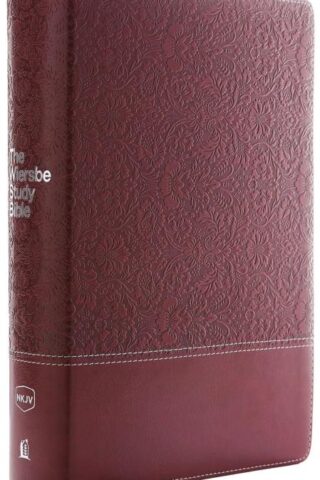



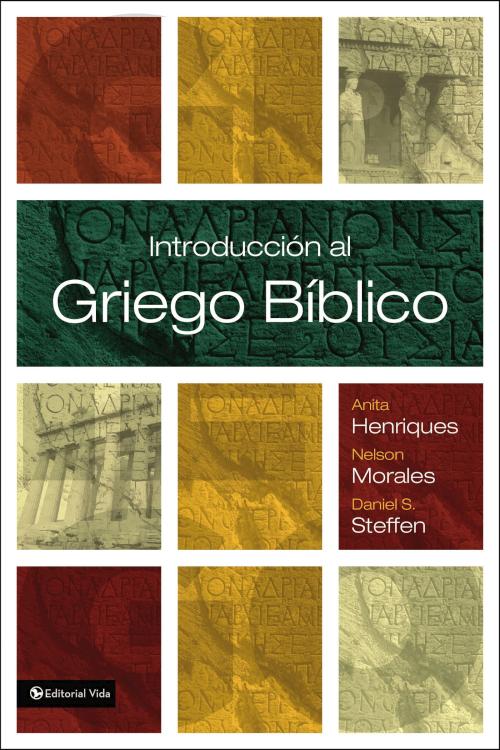
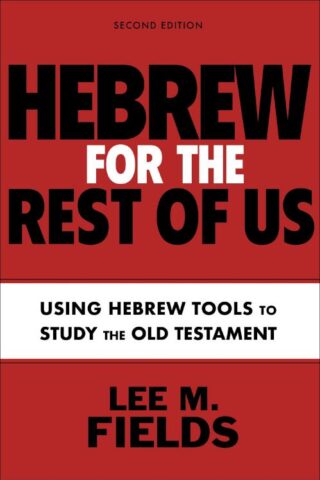

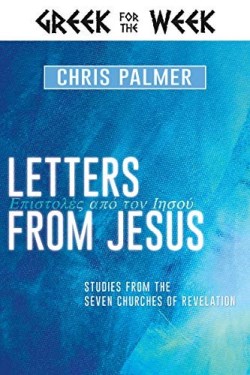
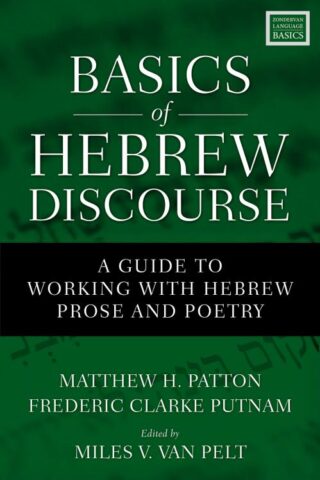




Reviews
There are no reviews yet.